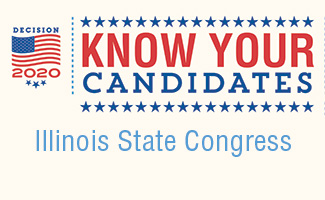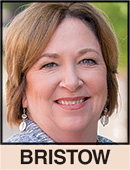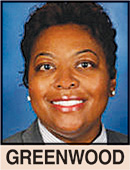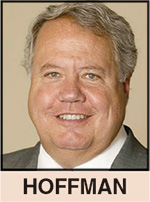 State Representatives Katie Stuart, 112th District; Monica Bristow, 111th District; LaToya Greenwood, 114th District; and Jay Hoffman, 113th District – all up for re-election on Nov. 3 – replied to a five-item questionnaire from the Labor-Tribune designed to let them demonstrate their support for the Labor Movement and issues that affect working people and their families. Here are the questions and their answers.
State Representatives Katie Stuart, 112th District; Monica Bristow, 111th District; LaToya Greenwood, 114th District; and Jay Hoffman, 113th District – all up for re-election on Nov. 3 – replied to a five-item questionnaire from the Labor-Tribune designed to let them demonstrate their support for the Labor Movement and issues that affect working people and their families. Here are the questions and their answers.
LABOR ACCOMPLISHMENTS
What was one Labor-oriented accomplishment that you either led or helped with that you are proud of and can hold up as evidence of your support for the Labor Movement?
 Stuart: I was proud to sponsor and champion House Bill 2078, which set a minimum salary for teachers of $40,000 in Illinois, which will help our state recruit and retain new teachers and strengthen our public education system. This was one of the AFL-CIO’s highlighted bills, and I’m proud to have an 89 percent lifetime score of voting with the interests of Organized Labor.
Stuart: I was proud to sponsor and champion House Bill 2078, which set a minimum salary for teachers of $40,000 in Illinois, which will help our state recruit and retain new teachers and strengthen our public education system. This was one of the AFL-CIO’s highlighted bills, and I’m proud to have an 89 percent lifetime score of voting with the interests of Organized Labor.
Bristow: During my time as state representative, I am proud to have stood with Labor in the passage of many bills and new laws critical to workers and our local Labor organizations. That includes stopping wage theft and stopping those who repeatedly and willfully violate wage laws, creating new protections for essential and frontline workers, and supporting a new capital horizontal and vertical construction program for the state that will create thousands of new jobs. I’m proud to have an 85 percent lifetime score with the AFL-CIO, which shows my support of Organized Labor and their priorities.
Greenwood: As a legislator with a 99 percent lifetime voting record with the AFL-CIO, and 100 percent in 2019, I am proud to work with our Labor union organizations and members to help move Illinois forward. Some of the priorities I supported including raising the state’s minimum wage, protecting and expanding bargaining rights, stopping wage theft, and a new $45 billion capital bill that will create thousands of jobs and opportunities in Illinois.
Hoffman: Prior to becoming the Assistant Majority Leader, I was proud to be the chairman of the Labor Committee and previously the chairman of the House Transportation Committee. Providing prevailing-wage jobs and promoting safety in the workplace has been my number one priority. The recently passed historic capitol/jobs program will provide hundreds of thousands of good-paying union jobs throughout all of Illinois.
COVID-19
What has been your involvement and experience with Illinois’ response to the COVID-19 virus, and what approach should we take moving forward?
Stuart: The pandemic remains an unprecedented challenge to our country and state. The economic and social strife has been felt by everyone since the pandemic hit in March. Since the beginning, I have been working to get information to constituents, and my office has been busy helping constituents with unemployment, business loans and grants, and navigating this crisis. Although our legislative session was short, we worked quickly to get much-needed relief to businesses, and resources and new protections to our front-line workers. Our area has also had to endure more restrictions than other regions in Illinois, so I think additional services should be accessible for those who live and work in our area now and moving forward.
 Bristow: We shouldn’t have to choose between protecting our most vulnerable residents and protecting our local economy. Both must be priorities as we move forward, and I have called for additional resources and aid specifically for Metro East businesses and workers. I know that small businesses and employees are the backbone of our local economy and I have worked with both them and our local Labor unions on economic issues throughout my career. My office has been focused on helping those impacted the most under the pandemic, including helping constituents apply and navigate the unemployment system and helping to host drives for local organizations and charities that are helping affected members of our communities.
Bristow: We shouldn’t have to choose between protecting our most vulnerable residents and protecting our local economy. Both must be priorities as we move forward, and I have called for additional resources and aid specifically for Metro East businesses and workers. I know that small businesses and employees are the backbone of our local economy and I have worked with both them and our local Labor unions on economic issues throughout my career. My office has been focused on helping those impacted the most under the pandemic, including helping constituents apply and navigate the unemployment system and helping to host drives for local organizations and charities that are helping affected members of our communities.
Greenwood: I believe that any approach we take must protect the health and safety of residents but also not hurt our workers and employees in our state. Any proposed policy moving forward should be a balance of both. I was proud to support legislation that adds additional penalties to those who seek to harm our essential employees and workers who have continued to go to work every day throughout this pandemic.
Hoffman: I was the sponsor of legislation that enhanced unemployment benefits for those who lost their jobs during these difficult economic times, and I sponsored historic legislation that provided a means of obtaining workers’ compensation benefits for individuals who contract COVID at the workplace.
CLEAN ENERGY
What would your approach be on the Clean Energy movement? Does Illinois need to protect its remaining fossil fuel industry or work toward replacing it with newer and cleaner technologies?
Stuart: As long as the transition to cleaner energy does not place unfair burdens on middle-class families and workers, I support moving toward clean energy goals in Illinois.
Bristow: I support looking into expanding the use of renewable energy in Illinois, but it needs to come in a way that protects jobs in the state. We must not sacrifice the livelihoods of hundreds of workers, particularly in the Metro East and southern Illinois, and in a way that does not cause extreme energy rate increases on consumers. I would also want to make sure that Organized Labor has a seat at the table on any new renewable energy proposals.
 Greenwood: I am very supportive of moving towards clean energy in Illinois, as long as we do not see new taxes and rate increases on consumers, and local jobs are protected.
Greenwood: I am very supportive of moving towards clean energy in Illinois, as long as we do not see new taxes and rate increases on consumers, and local jobs are protected.
Hoffman: As we move toward providing clean energy, we must ensure that current employment is maintained and job training is provided so that workers who may be displaced from current fossil-fuel burning plants are trained and employed in the clean energy economy. In addition, any new “clean energy jobs” that receive state assistance should provide for prevailing wage payment and adequate training.
FAIR TAX AMENDMENT
Are you supporting the Fair Tax amendment on the November ballot, why, and what do you think the Assembly should do about it if it is defeated in the election?
Stuart: Regardless of how we plan to vote, we can all agree that Illinois’ current tax system is not working for middle-class families, who were hit with an income tax increase just two years ago – which I opposed. I gave voters the choice of whether or not they would move to a fair tax system, and I encourage them to vote based on facts instead of the political spin. For example, the Fair Tax amendment has nothing to do with implementing a retirement tax, something I will always oppose. Regardless of what happens with the Fair Tax, our focus needs to be on providing more relief for middle-class taxpayers – especially property tax relief.
Bristow: I supported putting the Fair Tax amendment on the ballot to give the decision to voters on whether we move to a graduated income tax or stay at a flat tax. Regardless of the decided tax structure, I will make sure that we pass a balanced budget that still adequately funds education and vital services, especially important during this pandemic, that does not rely on higher taxes on middle-class families. I will also stand strongly against a retirement tax.
 Greenwood: I voted to put the amendment on the ballot, and no matter the way people choose to cast their vote, it’s clear that the tax system in Illinois isn’t working for middle-class earners. I believe that millionaires and billionaires should pay their fair share. The focus of legislators should always be on providing more relief for our middle-class taxpayers, whatever the outcome of the Fair Tax amendment is.
Greenwood: I voted to put the amendment on the ballot, and no matter the way people choose to cast their vote, it’s clear that the tax system in Illinois isn’t working for middle-class earners. I believe that millionaires and billionaires should pay their fair share. The focus of legislators should always be on providing more relief for our middle-class taxpayers, whatever the outcome of the Fair Tax amendment is.
Hoffman: I supported placing the Fair Tax on the ballot. However, it is my understanding that as a sitting legislator, I must refrain from taking a public position on the amendment.
VISION FOR ILLINOIS
What is your vision for the future of Illinois? Will it be one of the nation’s leading states for progressive government and a leader in industry, education and agriculture, or will it fall into decline and poverty? How can we make sure that the former is the answer and not the latter?
Stuart: Although our country has had to deal with the economic and social consequences of COVID-19, I am confident that Illinois is resilient, and we can return to the trajectory we were on before the pandemic. We can make sure that we keep Illinois on the right track by keeping elected officials accountable through ethics reform, supporting our local and Illinois businesses and protecting our most vulnerable citizens. Illinois has faced many headwinds over recent years, and I am confident that through bipartisan collaboration, our state will improve in areas such as industry, education and agriculture.
Bristow: I envision Illinois being a leader in the Midwest and across the county. To fully achieve that vision, the whole state needs to be brought up and promoted, not just Chicago and the suburbs. The Metro East and southern Illinois are poised for growth with proximity to the river and land rich in natural resources. I am making sure that we are investing in southern Illinois and the Metro East by expanding broadband and promoting local manufacturing, and making sure that our jobs here in our region are protected and not being outsourced to other countries.
Greenwood: Our communities are still recovering from the pandemic, but we need to put Illinois in the best position as a leader for our country. I am confident that by working together, with both parties, we can make Illinois a progressive leader by fighting for what’s important to the middle-class, who make up the majority of our population. By making the proper investments in public education, new good-paying jobs and a better infrastructure, we can lift up Illinois and all residents in it.
Hoffman: My vision for the future of Illinois is a state that provides good quality education, adequate and affordable healthcare, good-paying jobs, and economic development. We certainly face considerable challenges. However, I believe the future of Illinois is bright.


